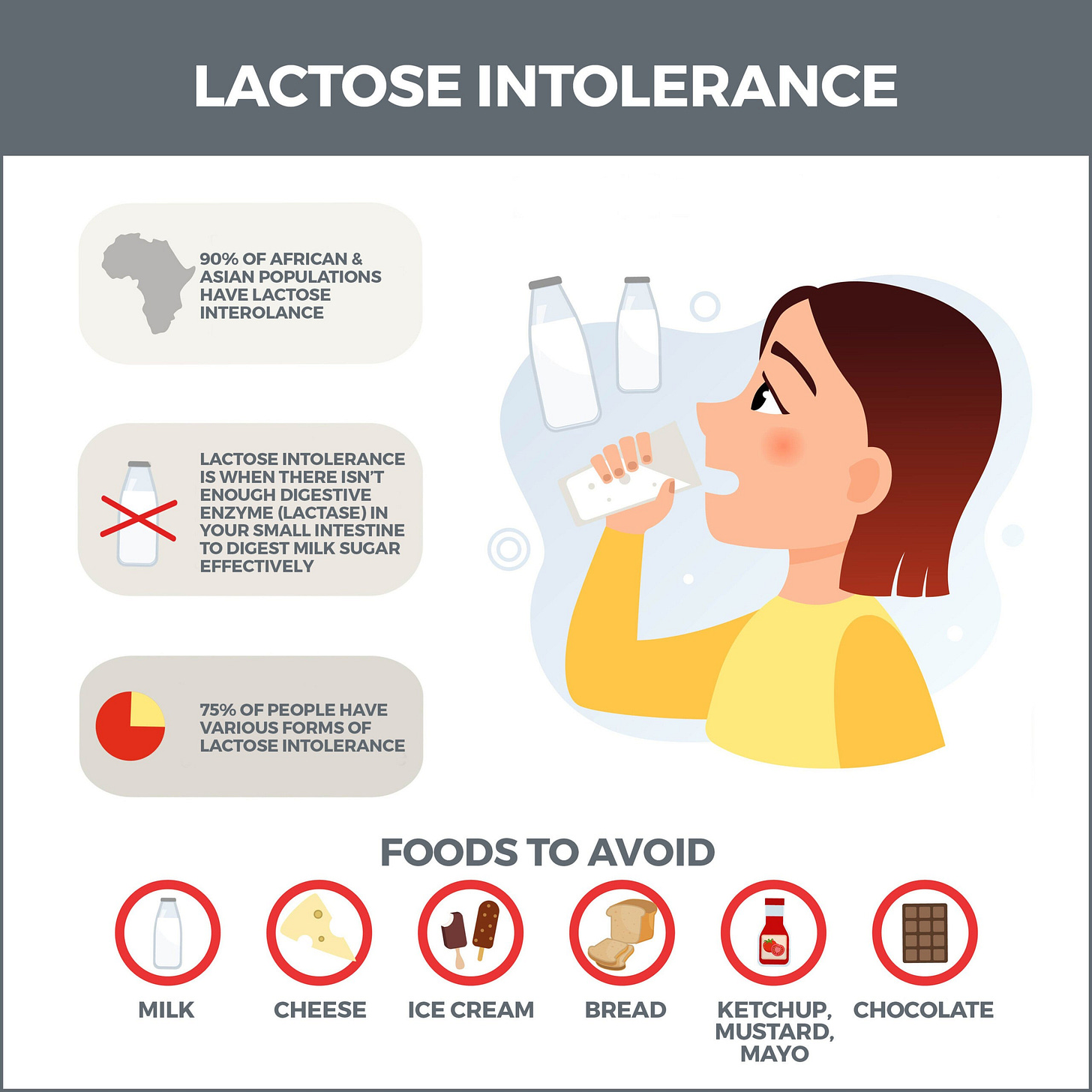Lactose Intolerance
Written by Shraddha Tipparaju
Cheese, ice cream, milk, yogurt: what do all of these foods have in common? They are all dairy products and many consume dairy on a daily basis but, for majority of the world, the consumption of dairy comes with unsavory side effects.
65% of the population worldwide is lactose intolerant. I’m sure we’ve all heard the term before but, what is it and how is it even caused?
Lactose intolerance is defined as the inability to digest the lactose in dairy and people who are lactose intolerant experience gas, cramps, bloating, and diarrhea when their bodies try to digest dairy. Contrary to what the name implies this is not the same thing as having a lactose allergy.
Technically speaking this occurs because the small intestine cannot produce enough lactase to properly support the digestion of lactose. Lactase is an enzyme that allows us to digest dairy products.
There are multiple causes for lactose intolerance some of which include: if the gut is injured and/or gets an infection or disease, after a premature baby is born for a short time, they are lactose intolerant, and, most commonly, lactose intolerance is hereditary where after puberty the body starts to make less and less lactase.
Some ways that you can diagnose lactose intolerance are through a stool acidity test - which is used for young children and infants, a hydrogen breath test where you drink milk and then the concentration of hydrogen in your breath is measured since lactose intolerant people have a lot of hydrogen in their breath when they consume dairy and finally, a lactose tolerance test which is a simple blood test.
Lactose intolerance causes discomfort and disrupts the lives of so many people all around the world and while there is no cure it can be easily managed through dietary changes. There are so many dairy alternatives such as soy and oat milk and plant-based cheeses. Instead of viewing lactose intolerance as a hindrance, we should view it as a catalyst for us to try new foods and get creative with our recipes. It's important to remember that you're not alone and that you can turn any obstacle into a blessing.
References
https://www.hopkinsmedicine.org/health/conditions-and-diseases/lactose intolerance
https://medlineplus.gov/genetics/condition/lactoseintolerance/#:~:text=Approximately%2065%20percent%20of%20the,to%20digest %20lactose%20after%20infancy.
https://www.mayoclinic.org/diseases-conditions/lactose-intolerance/symptoms causes/syc-20374232 https://www.mayoclinic.org/diseases-conditions/lactose intolerance/symptoms-causes/syc-20374232
Written by Shraddha Tipparaju from MEDILOQUY


